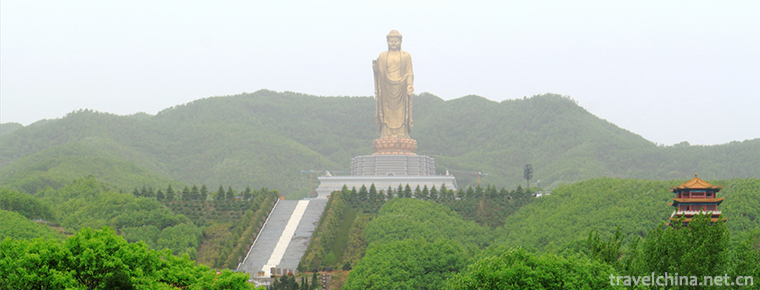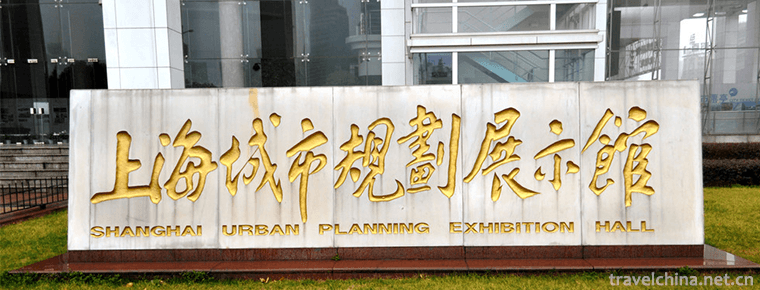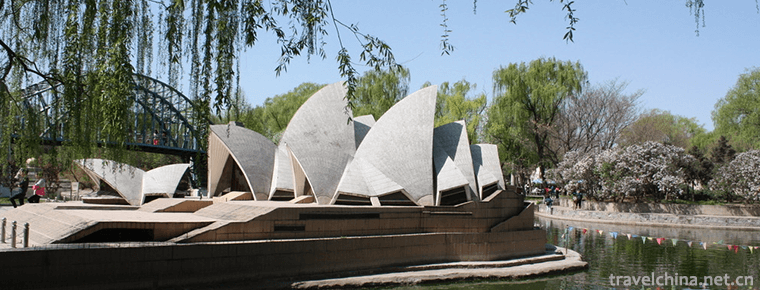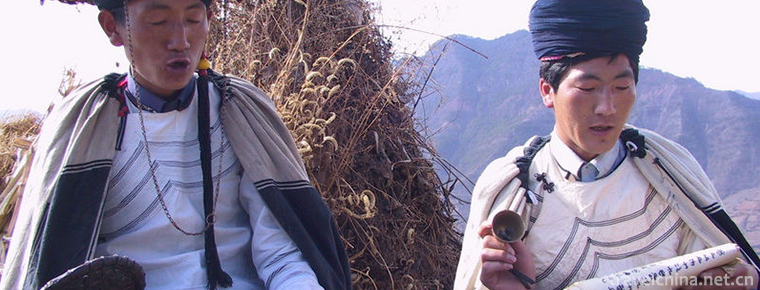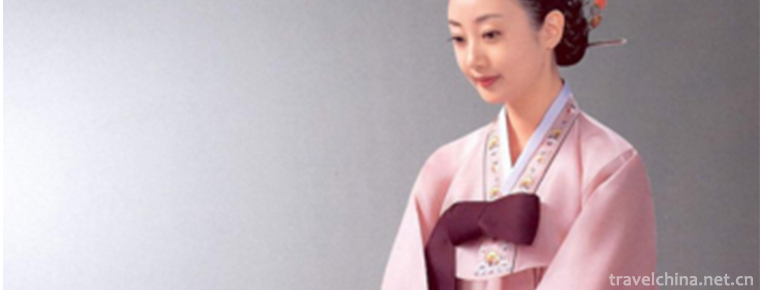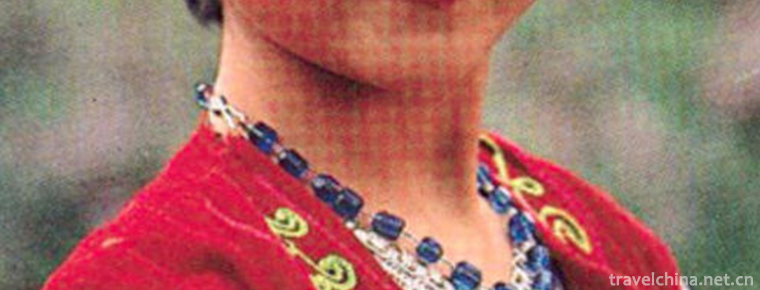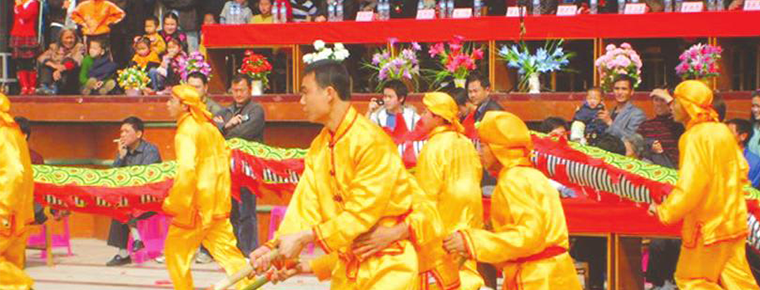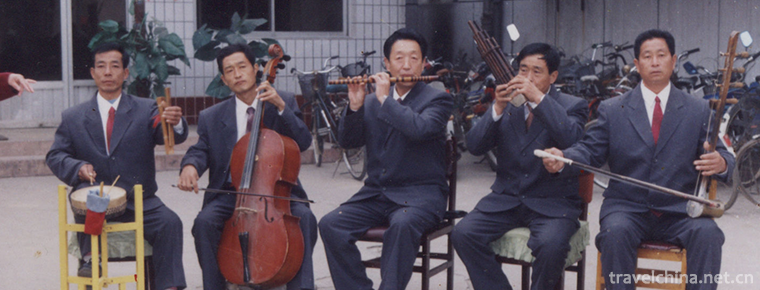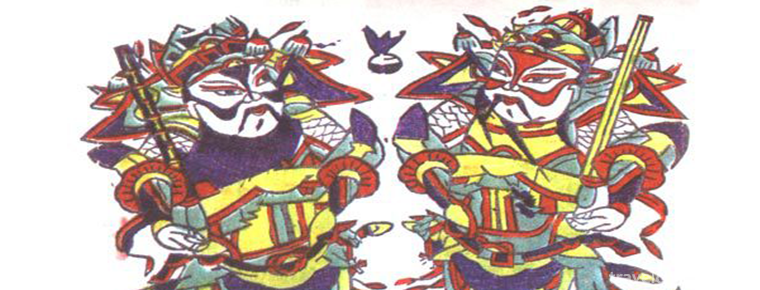Jingdong drum
Jingdong drum
Jingdong Drum is a traditional rap art originating in Sanhe, Xianghe, Pinggu and Baodi of Hebei Province. The main instruments, in addition to the singer's left hand with copper plate, right hand drumming, accompanying instruments are mainly three strings and dulcimer. Because the accompaniment and melody are simple.
The performance relies on the performers'singing skills and drumming skills. Therefore, it is easy to learn and remember, so that the Jingdong drum singing in Tianjin is very popular. Especially in the 1970s and 1980s, Tianjin's mass culture was quite popular, and Jingdong Drum was often used as a performance item of literary and artistic performance. In particular, the singing of Dong Xiangkun, a printing worker, is full of both voice and emotion, simple and unadorned, and often compiles and performs some songs by himself, which is welcomed by the masses in Tianjin. On May 20, 2006, the opera was approved by the State Council and listed in the first batch of national intangible cultural heritage list, which is a treasure of Chinese culture. In November 2018, "Jingdong Big Drum" was selected as the fifth batch of provincial non-heritage projects in Hebei Province. The project successor is Zhao Weixin.
Historical evolution
The late Qing Dynasty was introduced into Tianjin from the eastern part of Beijing. In the mid-1920s, it was finalized in Tianjin. It was once called "Big Drum Book", "Big Drum" and "Music Ting Tune". In the mid-1930s, it was formally named "Jingdong Big Drum".
At the end of the Qing Dynasty, Zhang Qilao, a folk rapper in the eastern part of Beijing, came to Baidi, Tianjin, to sing a drum book called "Getou Tune" in the eastern part of Beijing. Zhang Zhilao's original name is Zhang Zengde. His artistic name is Tieban Zhang. He moistens his voice with liquor and sells songs in the town by riding donkeys. He sings drum books featuring "timid Beijing tone". He has fewer words and more tunes, and the tune is slow and long. He can hum for a few minutes at the beginning of one of the commonly used sentences. Although he failed to sing in Tianjin, he gave many apprentices. Among the disciples, there were also some famous people in Tianjin. After a long time, because its singing rhythm is too slow. Often the opening board has not been finished, the audience of the auditorium has dispersed. The artists have processed and reformed it. After processing by Liu Wenbin and others from Baodi County, in the mid-1920s, a new tune was formed which was quite different from its prototype: no opening, no starting, no singing; mixing the falling tune and Pinggu tune, such as falling tone, swinging tune and crossing the door, which belonged to the same kind of Jingdong tune; using the melody of Hebei folk song "Miaomen Kai"; and perfecting the song named "13 coughs". Characteristic singing - long tune.
In the seventeenth year of the Republic of China (1928), Liu Wenbin broadcasted the finalized Beijing-East drum on the newly-built Tianjin Radio Station. The program list did not label the name of the type of music, but was collectively referred to as "big drum, miscellaneous music" with other tunes, big drums and cross talk. In the early 1930s, he entered small and medium-sized opera venues for performances. When advertising, he used the names of big drums, musical Pavilion tunes and musical Pavilion drums. Wang Peichen and Zhang Shicheng both called their drums "music Pavilion tune" and the audience and critics often confused them as the same kind of music. In the twenty-fourth year of the Republic of China, Liu Wenbin officially named it Jingdong Drum. Since then, the name of Jingdong Drum has been fixed in Tianjin by artists, audiences and critics Yi. At this time, other Jingdong drum artists also developed while inheriting Tieban Zhang's singing, forming different singing methods and charm. However, in general, the singing method of this kind of music has converged.
It was formed in Tianjin in the early 1930s. It was formed by Liu Wenbin and other artists on the basis of singing Pinggu tune in Baodi dialect, absorbing the melody of Hebei folk song "Prostitute's complaint" and falling tone. It used to be known as Leting Dagu. Before the founding of the People's Republic of China, Liu Wenbin's style was the most prominent and influential among many Jingdong drum artists. In addition to singing big books, he also transplanted short songs such as Wujiapo, Xixiang Disassembly, Zhaojun Exit from the Fortress, Sifu Wang Erjie, Zhuge Liangbao and so on. Through singing short passages, the slab style and singing tune of Jingdong drum were further processed. His singing is popular, humorous, plain, articulate and clear, and is popular with the general public audience, especially family women. But at that time, they still used "big drum" and "miscellaneous music". Leting tune... Until 1935, the name of "Yue Ting Da Gu" was officially designated as "Jingdong Da Gu". However, due to his lack of sophistication in his tunes, rough drum lyrics and writing, the genre declined in the late 1940s.
After the founding of the People's Republic of China, Jingdong Drum has developed unprecedentedly and many new actors have grown up. Gao Letter from Baodi, Chen Huaide, Wang Fang, Kang Fuyuan of Sanhe, Wei Baohua of Jixian County, Hudejiang of Chengde, Ye Lianchun, Zhao Xueqin of Xianghe River, Wang Yanqiu (female) of Xiongxian County, Wang Linfeng of Anci, Liu Fuzeng of Zhangjiakou are well-known artists in this period. Many artists actively participate in the reform of old songs and the creation and performance of new ones. Chengde's new bibliography, Yang Jingyu's martyrdom, the story of the tin bucket and the biography of the heroes of the new sons and daughters, was broadcast continuously on the Jehol People's Broadcasting Station. In 1958, the first Hebei Opera Festival performers, such as Andayou, Shiziyu, Liu Fuzeng, Kangfuyuan and Wei Baohua, participated in the performance. Liu Fuzeng and Kang Fuyuan also won the third prize for actors; Wei Xigeng participated in the conference and gave a demonstration performance, winning the honorary prize for old artists.
In the 1950s, veteran artist Liu Wenbin broadcasted the new book White Haired Girl on the radio. In the 1970s, Dong Xiangkun, an amateur actor from Tianjin, renovated his singing in Putonghua and added the accompaniment of the dulcimer to the accompaniment of the three strings. The passage "Chairman Mao's Book, My Favorite Reading" was very popular and had a great influence. Many literary and artistic propaganda teams in Hebei Province and their young actors competed to follow suit, thus making this new Beijing-East drum singing in Mandarin unprecedented popularity.
Inheritance and protection
Survival environment
With the development of society, the transformation of production mode and the restriction of economic law, folk art has been greatly impacted. Jingdong Big Drum is the most popular Chinese opera drum. Today, its singers have spread all over the northern part of China, but at present, there are fewer young singers and artists are relatively aging. At present, we have established the Beijing-East drum transmission base, purchased clothing, props, musical instruments and other inheritance activities to train new students. Many studies and discussions have been made on the protection of Jingdong drum. A Symposium on Jingdong drum has been held in Beijing, Tianjin and Hebei, and the album of Jingdong drum has been published. In addition to rescue and protection, the protection of Jingdong Drum is also important for its inheritance and development. The creation of new repertoires and the application of new forms of performance are all important components.
Protection points
1. The way of inheritance pays attention to the inheritance of the inheritor, and focuses on maintaining its authenticity.
2. Strictly inherit and protect the traditional tone, form and props of Langfang Jingdong Drum. We should not only keep good information, but also try our best to inherit the original flavor.
3. Maintain the individual characteristics of each school of Langfang Jingdong Drum, truly achieve the development on the basis of inheritance, and achieve the goal of comprehensive protection of Langfang Jingdong Drum.
Inheriting characters
Liu Wenbin
In the seventeenth year of the Republic of China (1928), Liu Wenbin broadcasted the finalized Beijing-East drum on the newly-built Tianjin Radio Station.
The program list is not marked with the name of the song, but with other minor tunes, big drums, cross talk collectively known as "big drums, miscellaneous songs". In the early 1930s, he entered small and medium-sized opera venues for performances. When advertising, he used the names of big drums, musical Pavilion tunes and musical Pavilion drums. Wang Peichen and Zhang Shicheng both called their drums "music Pavilion tune" and the audience and critics often confused them as the same kind of music. In the twenty-fourth year of the Republic of China, Liu Wenbin officially named it Jingdong Drum. Since then, the name of Jingdong Drum has been fixed in Tianjin by artists, audiences and critics Yi.
The singing of Jingdong drums has always been accompanied by dialectal elements of Jingdong area (mainly Baodi). Liu Wenbin also uses many Tianjin pronunciations. Its singing voice is simple and easy, suitable for narrating stories. The lyrics are popular and clear. The traditional repertoires often performed include mid-length, long book Yu Gong Case, Liu Gong Case, Bao Gong Case, Xiao Bayi, Hui Cup Ji, Watertight Double Seal and so on. The short stories include "Blue Bridge Club", "Wang Baochai", "Broken Mirror Frame", "Xia Yangzhou", "Disassemble the West Chamber", "Small Two Crowds Competing for Lamps", "Big West Chamber" and other seventy or eighty paragraphs.
Wei Xi G
Jingdong drum artist has disciple Wei Xigeng of Tieban Zhang, who has been performing in Tianjin for a long time.
Twenty-four years after the Republic of China, radio broadcasting was the main mode. There is also Qi Wenzhou, who sings in libraries and other places, but also broadcasts on radio for a long time. His singing methods are different from those of Liu Wenbin and Wei Xigeng. The repertoire includes many long books, such as Sima Qianlong Going abroad, Three Kingdoms, Zhongzhong Zhuan, Xiangma Zhuan and Xitang Zhuan. Others, such as Liang Deming, Tian Xiangkui and Li Shoushan, also sang in the bookstore or radio station, mostly in long books.
Wang Yan Qiu
Born in 1924 in Xiongxian County, Hebei Province, in the thirteenth year of the Republic of China, he was 10 years old and practiced art under the Gengmen Gate of the Western Wei Dynasty. In the late 1930s, he began to appear on the stage, singing in many small and medium-sized places and radio stations. There are many songs, such as Sui and Tang Dynasty, Wagang Village, Hujia General, Shuanghe Yin, Green Peony, Zhengxi, Anti-Tang Dynasty, Luo Cheng, etc. The famous short passages are Liaozhai, Yang Bajie Youchun, Pantao Hui, Shangshou, etc. Sometimes they sing Pinggu tune, such as "Traveling to Lake and Borrowing Umbrella".
Being able to sing in a good voice is welcomed. Her singing has a unique style. Outline phrases are also different, such as "Waiting on you today..." Broken drum and dumb voice, rude tone, lost words and landed, Hu fumigated ears, broken melons and dropped words, a word of respect ah.............................................
Dong Xiang Kong
People from Baodi County, Tianjin City. Like music, especially good at singing Jingdong drum. He has learned all the singing skills from Liu Wenbin for many years. Since 1952, he has participated in the performances and performances of all previous city, district and system workers'literary and art festivals. In more than 30 years of stage practice, he has sung a large number of new modern repertoires and made a comprehensive innovation of the Beijing-East drum. He broke the pattern that every singer of Beijing-East drum must use Beijing-East tone and changed it to Beijing tone. He only made "timid tune" without "timid character", which not only beautified the pronunciation, but also fundamentally changed the charm of Beijing-East drum and even some tune types. He abandoned the "horizontal voice and blacktone" that all Liu Wenbin learners had to use. He changed his voice to the sweet real voice, improved the pronunciation, changed the timbre, and no longer had a sense of depression. He not only did not learn Liu Wenbin's "walkthrough" and the same "single pendulum floating" and approximate spoken language, but also paid attention to the cadence, speed and seriousness of the melody, which greatly beautified the singing. And increased the Lyric ability. In the program, the "table is" which must be pinched off to open the board, and the beginning of the first sentence becomes high, and the end of the whole paragraph turns up eight degrees. New tunes have also been tried out in some repertoires. Together with amateur stringer Liu Yuexun, he reformed the accompaniment music of Jingdong drum, expanded the prelude, enriched the rhythm of interrogation, and added the dulcimer to the accompaniment instrument.
Dong Xiangkun basically only performed the newly compiled modern repertoire. He successfully applied the singing skills and characteristic aria of the traditional repertoire to the new repertoire and achieved good results. "A transplanter" before the 1960s, the famous "White Snow Red Heart", "Liu Sanjie", "Jiao Yulu" in the early 1960s, the "Reading Chairman Mao's Book" and "Sending Girls to College" from the mid-1960s to the mid-1970s, the "Wooden Pot", "Fear" and "The Great Truth" around the 1980s are widely circulated. He also enthusiastically disseminated the art of Jingdong drum and taught many people. It makes Jingdong Drum a well-known song in North China and Northeast China. Disciples included Hao Debao, Tianjin Quyi Troupe and Wang Shaozhou, Jilin Quyi Troupe.
Shao bin Liu
At the same time, Liu Shaobin of Tianjin Quyi Troupe performed Jingdong Drum. His repertoire is relatively broad, with emphasis on both tradition and modernity. He often sings "On the train", "Three Letters", "Girls don't love such people", "Liu Sanjie", "Qinqiao", "Zhuge Liang's Pawn", "Disassembling the Western Chamber" and so on. Liu Shaobin also often performs in the form of sitting and singing, playing three strings by himself and manipulating short-footed drums.
Wang Jixin, Li Chengxiu and Zhang Shuyang have also been active on the amateur stage. Their singing styles of "Hong Yue E Dreaming", "Blue Bridge Club" and "Big West Chamber" are rich in Liu Wenbin's singing style.
The new repertoires of Jingdong Drum include "Glorious Model", "Reunion", "Snow Night Struggle", "Registration", "Language Record" and "Wrong Zhongqing".
Ji Chang CAI
Born in Xiaodingzhuang, Gaolou Town, Dongsanhe City, Beijing on May 20, 1952. Member of China Quyi Artists Association, Member of China Shandong Fast Book Research Association, Beijing Quyi Troupe Jingdong Dagu Special Actor, Member of Hebei Quyi Artists Association, Member of Hebei Folklore Society, Member of Hebei Musicians Association, Chairman of Langfang Quyi Artists Association, Member of Langfang Municipal Musicians Association, Member of Sanhe Municipal Literary Union, Chairman of Sanhe Quyi, Dramatist Association and Third Political Consultative Conference He Municipal Second Committee Member and Secretary of the Party Branch of Sanhe Municipal Culture Museum.
December 17, 1969. Cui Jichang got on the train to the army at Tianjin West Station and arrived the next day at the tank unit where he had served for 17 years. At the New Year's Eve of the Second Company of the Reconnaissance Battalion, Cui Jichang's Jingdong Drum was warmly welcomed by the officers and soldiers, and has since become the backbone of the company's literature and art. In 1974, he won the first prize with the reconnaissance two-company singing group composed of three other comrades-in-arms. His performance of "Big Boss Being a Critic" by Jingdong Drum has received unanimous praise. In October of the same year, they attended Jinan Military Area Literature and Art Concert. Their four-member singing group was recommended to perform in Beijing, which caused a great sensation. In 1975, he toured as a benchmark of excellent singing groups in Jinan war zone. Cui Jichang's Jingdong drum is sung everywhere, and many people have visited for advice many times to learn to sing it. Cui Jichang took the trouble to teach singing and was highly praised by grass-roots cadres and soldiers.
Cui Jichang has served in the army for 17 years. He has participated in the Military and Military Area Literary and Art Concert (tune) performances. He has been awarded excellent actors 13 times and more than 20 works have won prizes. His Jingdong drums are reserved programs every time and won awards second time. In 1977, he participated in the third performance of Jinan Military Region Literature and Art Festival. The composer and singer of Jingdong Drum "Selecting Explosives" won double prizes in creation and performance, and was recorded and video broadcast by Shandong TV and radio station. His group was once again awarded as the representative team of Jinjing to participate in the whole army literary and artistic concert.
Cui Jichang also made outstanding contributions to the inheritance and development of Jingdong Drum. He said to the author: Now the president of Langfang Quyi Artists Association, he has formulated a short-term and long-term plan to inherit and develop the Beijing-East Drum. 1. Convening a seminar on Beijing-East Drum. 2. Hold a concert of famous artists and segments. 3. Establish a Beijing-East Drum Development Promotion Association. 4. Put out a collection of Jingdong Drum Works. 5. Establish a big drum Library in the east of Beijing. He will devote all his life to the prosperity and development of the traditional art of Jingdong Drum.
Selected non Heritage
The state attaches great importance to the protection of intangible cultural heritage. In 2006, the song was listed in the first national intangible cultural heritage list and became a treasure of Chinese culture.
Popular area
Jingdong drum is widely spread in Langfang area. There are more professional and amateur artists in Sanhe, Xianghe, Dachang and Anci counties. It has been popular in rural areas for many years and is popular with local people. In the past, in the countryside of Yongqing, Gu'an, Baxian, Wen'an and Dacheng counties, Jingdong drum was rarely sung. In the early 1980s, amateur literary and artistic propaganda teams were generally set up in the countryside, and more and more people sang Jingdong drum passages.

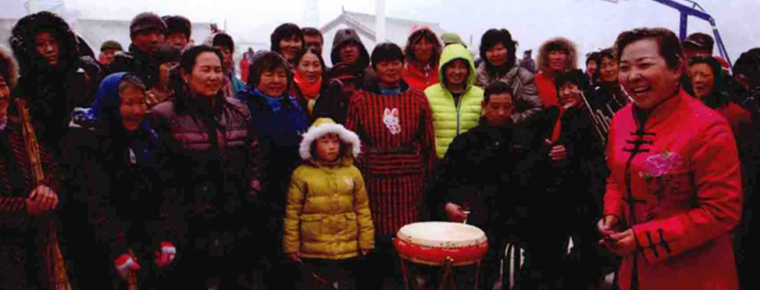
-
Zhongyuan Great Buddha Scenic Area
The Central Plains Buddha, located in Shangtang Foquan Temple, Zhaocun Township, Lushan County, Pingdingshan City, Henan Province.
Views: 180 Time 2018-12-09 -
Shanghai Urban Planning Exhibition Hall
The Shanghai Urban Planning Exhibition Hall was completed in early 2000 and opened to the public on February 25, 2000. As an important window for Shanghai's external publicity, Shanghai .
Views: 129 Time 2018-12-19 -
World Park
The World Park is located in Dabaotai, Huaxiang, Fengtai District, Beijing. It is 16 kilometers from the city center and 8 kilometers from Beijing West Railway Station. It is a national 4A-level sceni.
Views: 83 Time 2018-12-19 -
Liu Jiawan Chaihai Garden
Located on the eastern coast of Taolu Town, Donggang District, Rizhao City, Liujiawan Chaihai Garden is a national AAAA-level tourist attraction, a popular science education base, and a core scenic sp.
Views: 113 Time 2018-12-26 -
Flaming Mountains
Flame Mountain in Xinjiang is the most famous scenic spot in Turpan. Located in the northern margin of Turpan Basin, the northern route of the ancient Silk Road is mainly composed of red sand.
Views: 338 Time 2019-01-19 -
Bemo music
Qubila fire is well known in Meigu County, Liangshan Prefecture. He is not only a highly respected Yi Dabimo, but also a representative successor of national intangible cultural heritage projects..
Views: 302 Time 2019-04-04 -
Korean Costume
Korean costume, Korean traditional folklore, one of the national intangible cultural heritage..
Views: 133 Time 2019-04-16 -
Kazakh Costume
Kazakh people are characterized by pastoral nomadic culture. Their clothes are easy to ride. Their national clothes are mostly made of sheep's skin, fox's skin, deer's skin and wolf's skin, reflecting.
Views: 213 Time 2019-05-02 -
Lion Lamp in Jinggangshan Hall
"Quantang Lion Lantern" is a traditional Wushu athletic project spread in Huzhaoping Village, Shangxiang, Jinggang, Shandong Province. It has nearly 200 years history. .
Views: 152 Time 2019-05-08 -
Four strands
Four-strand string, also known as four-strand string, two-strand string, five-tune string and five-tune tune tune tune, is one of the ancient traditional local operas in China. It originates from Julu.
Views: 388 Time 2019-06-16 -
Zhuxian Town Wood Print New Year Picture
Zhuxianzhen Wood Engraving New Year Picture is one of the ancient Chinese traditional crafts. As the originator of Chinese woodcut New Year pictures, is mainly distributed in Kaifeng, Zhuxian Town and.
Views: 134 Time 2019-08-10 -
Four famous Chinese embroidery
Suzhou embroidery is famous for its fine stitches, elegant colors and fine embroidery. It has the characteristics of flat, light, even, harmonious, fine and dense. The theme is mainly about small animals. Such as "cat play", "wind through flowers",.
Views: 316 Time 2020-12-12
